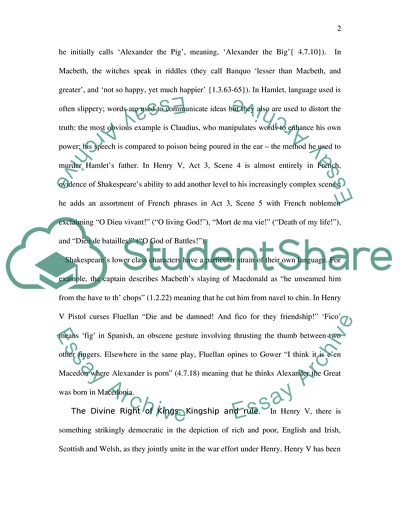Cultural Context of Henry V, Macbeth, As You Like It, Romeo & Juliet, Hamlet Coursework Example | Topics and Well Written Essays - 3250 words. https://studentshare.org/literature/1704867-literature-shakespearetopicgive-an-account-of-what-you-consider-to-be-essential-features-of-the-cultural-context-of-shakespeares-work
Cultural Context of Henry V, Macbeth, As You Like It, Romeo & Juliet, Hamlet Coursework Example | Topics and Well Written Essays - 3250 Words. https://studentshare.org/literature/1704867-literature-shakespearetopicgive-an-account-of-what-you-consider-to-be-essential-features-of-the-cultural-context-of-shakespeares-work.


